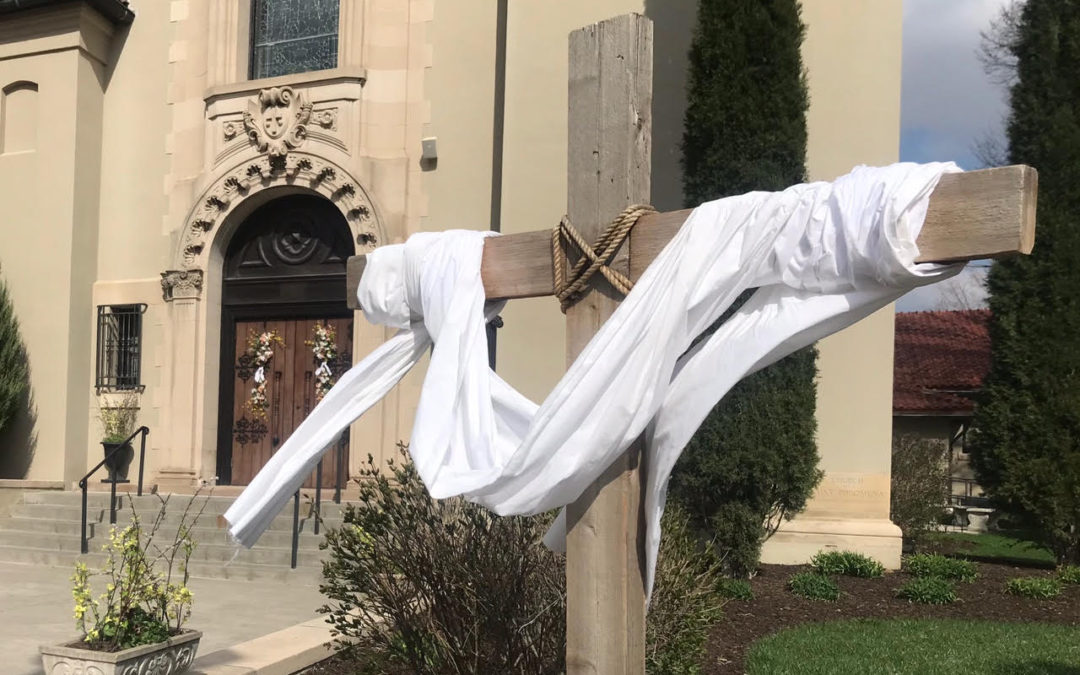Dear Friends,
The question of doubt often comes up from younger members of the Church. Many of their friends no longer believe in God and certainly do not believe in Jesus. Sometimes, they find themselves having feelings of doubt when they hear the arguments of their friends who do not believe. Perhaps, this is true for all of us. We find ourselves, at times, doubting or surrounded by those who doubt. Maybe the experience of Thomas in this Sunday’s gospel can give us some direction when dealing with doubt.
When Thomas doubts the account of the other apostles about the resurrection, he is not shut out of the community of apostles. Instead, the doubt of Thomas is a call which Christ answers by offering Thomas His own body to touch. The same is true of Peter when he walks on the water but begins to sink when he sees the waves. In response to Peter’s doubt, Christ stretches out His hand for Peter to grab. When Peter doubts, Christ does not accuse him of being faithless, but asks, “You of little faith, why did you doubt?” Christ does not punish the doubt of either, but quiets the doubt with a greater gift. Would you rather walk on water or touch Jesus Christ?
Following those scriptural examples, when we encounter doubt in others or in ourselves, we should not punish the doubt but instead allow the doubt to lead into a deeper encounter with Jesus. It is easy to read Thomas’ words this Sunday as some kind of typical rhetoric we hear from people, “Unless I see the nail marks in his hands and put my finger where the nails were, and put my hand into his side, I will not believe.” However, Thomas’ claim might also be read as a definition of belief. Belief in Christ is a true entrance into His suffering. If a person of faith has been crucified with Christ, he has not only seen the nail marks in his hands, but felt the nails driven into his own hands. Until we have been crucified with Christ, as Jesus taught, we do not share His life.
The doubt of Thomas not only leads to his own blessing but becomes a blessing for all of us. In the moment of Christ’s revelation of Himself to Thomas, the apostle exclaims, “My Lord and my God,” a claim which reveals the doctrine of the dual nature of Jesus Christ. He does not simply believe, his doubt has led him to a deeper belief.
It seems to me that Christians often confuse faith with knowledge. At least, some Christians talk as if they were the same. I have been asked by strangers many times, “Do you know that you are saved?” I often respond with a very Catholic answer, “I have faith that I am saved. I hope I am saved. I love my Lord and I put my trust there.” And the reply usually comes back to me, “But do you know you are saved?” as though knowledge were greater than faith, hope and love. They are asking for knowledge when knowledge is not possible nor needed.
When you find your friends doubting because of some intellectual pursuit or because they experienced great loss, see them as Thomas and Peter. Speak to them in hope, teach them to wait for the wounds of Christ, the hand reaching down into the waves. Remember this in your own life as well. In the life to come, we will no longer hope, but partake fully in the fruit of hope. Until then, doubt is a part of our human journey. The more we plunge ourselves into the journey with Christ, the easier it will become and the more evident its truth will be to our heart.
Peace,
Fr. Damian
P.S. Thanks to all who helped with the Spaghetti Dinner, with all the liturgies for Holy Week and for preparing our young people for First Communion this Sunday. We have had so much going on and it has taken the help of so many to make it happen so beautifully. You have earned your rest!



